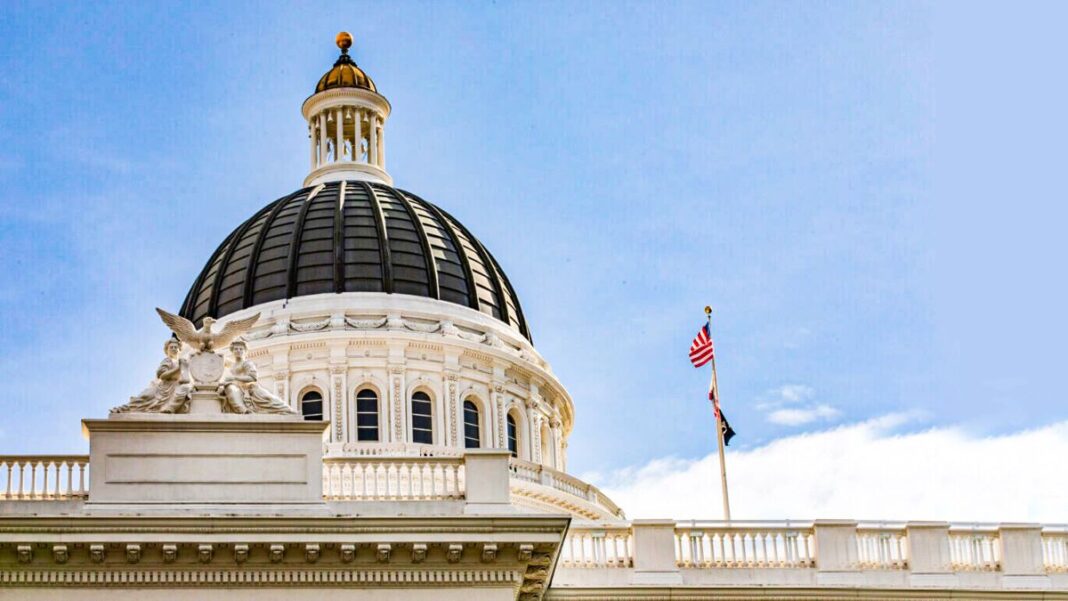Voting
Inmate Voting (ACA 4)
Assemblyman Isaac Bryan’s (D-Culver City) bill would amend the state Constitution to allow inmates that are incarcerated for felonies to vote while still in prison. If passed by a two-thirds vote in both the Assembly and Senate, it would then require a majority of voters statewide to pass.
Under current law, those with felonies on their record are allowed to vote. A 2016 law additionally allowed county jail inmates to vote.
Mail in Voting (AB 13)
Assemblyman Bill Essayli’s (D-Riverside) bill would repeal existing law that every voter receives a ballot by mail. It would also reduce the deadline for election officials to receive a ballot from seven to three days after an election.
Education
Homeless Pupils Guaranteed Income (SB 333)
Sen. Dave Cortese’s (D-San Jose) bill would give homeless 12th-grade students of the class of 2024 $1,000 per month for five months.
Nearly 270,000 students across the state experience homelessness, according to a 2020 report by the University of California–Los Angeles. Los Angeles, San Bernardino, and Orange counties have the largest population of homeless high schoolers—with over 66,000, 31,000, and 29,000 respectively.
Prohibit Schools from Banning Curriculum Without State Approval (AB 1078)
Assemblyman Corey Jackson’s (D-Moreno Valley) bill would prohibit local school boards from banning or not adopting curriculums unless they received state approval. It also requires school boards to receive state approval before removing books or other publications from school libraries.
Some opponents have said the bill is a reaction to school districts that have banned critical race theory.
Crime
Lower Theft Threshold (AB 23)
Assemblyman Al Muratsuchi’s (D-Torrance) bill would lower the current threshold of petty theft and shoplifting from $950 to $400. It would require approval by California voters.
In 2014, state voters passed Proposition 47 mandating that shoplifting up to $950 be punished as a misdemeanor.
Police Canines (AB 742)
Assemblyman Corey Jackson’s (D-Moreno Valley) bill would prohibit the use of unleashed police canines to apprehend a person or for crowd control. But it would not prevent their use for searching, rescuing, and narcotics or explosives detection.
Supporters say the use of police dogs promotes racial discrimination because black people have a higher percentage of serious injuries in canine operations.
Opponents argue that the bill takes away a less lethal force for law enforcement personnel to gain compliance in a violent or life-threatening situation and will put both officers and suspects at greater risk.
Health Care
Expand Health Care to Illegal Immigrants (AB 4)
Assemblyman Joaquin Arambula’s (D-Fresno) bill would allow immigrants without legal status to purchase insurance through Covered California—the state’s official health insurance marketplace.
Under current law, an individual needs to be either a U.S. citizen or a legal resident to purchase such.
Allow Children to Consent to Counseling Without Parent Permission (AB 665)
Assemblywoman Wendy Carrillo’s (D-Los Angeles) bill would allow minors 12 and older to consent to mental health services or counseling without parents’ consent or notification.
Under current law, such minors only override parental consent if they are in danger of serious harm to themselves or to others, or if they are an alleged victim of child abuse.
Taxes
‘Tax the Rich’ Bill (AB 259)
Assemblyman Alex Lee’s (D-San Jose) bill would impose a 1.5 percent tax on Californians with a worldwide net worth of more than $1 billion starting in January 2024, and a 1 percent tax for those earning over $50 million starting in January 2026.
According to Lee, the taxes can raise the state’s revenue by nearly $22 billion per year.
However, under the current state constitution, the personal property tax rate is limited to 0.4 percent. Consequently, Lee introduced a constitutional amendment (ACA 3) to remove the tax rate cap.
By Sophie Li






